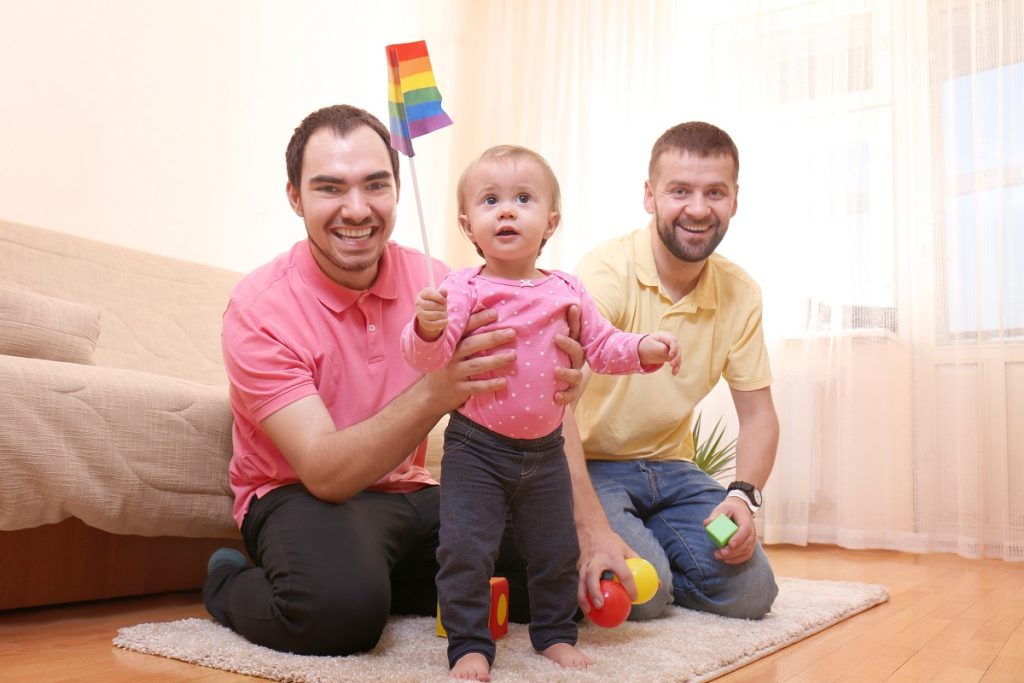- Same-sex marriage legalization paved the way for same-sex couples to adopt children legally.
- Same-sex couples who intend to adopt a child must ensure they have legal representation to safeguard their rights.
- Same-sex couples follow the same adoption process as opposite-sex couples but may need to provide extra documentation to demonstrate their eligibility.
- A second-parent adoption may be required in same-sex relationships to give both partners legal parental rights.
- Discrimination and legal challenges may arise due to the couple’s sexual orientation or state laws.
Adopting a child as a same-sex couple is a beautiful decision that requires careful planning and execution. Understanding the legalities surrounding adoption as a same-sex couple is essential to avoid any complications down the road. This blog post will discuss the laws that apply to same-sex couples who want to adopt a child in the United States.
1. The Legalization of Same-Sex Marriage
Legalizing same-sex marriage in the United States resulted in the legality of same-sex couples adopting children. In states that recognize same-sex marriage, same-sex couples have the same rights and legal protections as opposite-sex couples who seek to adopt. However, in states that do not recognize same-sex marriage, same-sex couples may face legal challenges while adopting children.
For example, in some states, same-sex couples may be unable to jointly adopt a child, requiring one parent to go through the adoption process as an individual. In addition, states may have different standards for determining who can and cannot adopt a child based on the couple’s marital status or sexual orientation.

2. Legal Representation
It is important for same-sex couples who plan to adopt a child to seek legal representation. An experienced LGBT family law attorney can help navigate the adoption process and protect the couple’s legal rights. Legal representation can also help address any legal challenges or discrimination during adoption. They can also guide you on the best approach to complete the adoption process. Look for an attorney with experience and expertise in adoption laws specific to same-sex couples.
3. The Adoption Process for Same-Sex Couples
The adoption process for same-sex couples is the same as for opposite-sex couples. The adoption agency will evaluate the couple’s ability to provide the child with a stable and loving home. The only difference is that same-sex couples may be required to provide additional documentation to prove they are eligible to adopt a child in their state, such as proof of marriage or court order. Here are some general steps that you’ll have to go through:
a. Home study
This is a thorough evaluation of the home environment to ensure it’s safe and appropriate for the child. The home study will assess the couple’s lifestyle, financial situation, and ability to provide a stable home for the child.
b. Legal paperwork
The couple must fill out several legal documents, such as an adoption application and consent to adopt. The court will review these to determine whether the couple is eligible to adopt a child.

c. Matching with the child
The adoption agency will match the couple with a child that needs a home by considering the family’s needs and preferences. The couple will then be allowed to meet with the child for a home visit. You should be prepared to provide the child with a safe and loving home.
d. Interviews
The couple must participate in a series of interviews with the adoption agency, social workers, and the court to make sure they are fit parents. Most states also require same-sex couples to have a physician’s approval before adopting.
4. Second-Parent Adoption
In same-sex relationships, one partner may adopt the child, giving them legal parental rights. The other partner may then go through a second-parent adoption to establish legal parental rights. This is important because if the parent who legally adopted the child dies or becomes incapacitated, the other partner will still have legal rights to the child.
5. Discrimination and Legal Challenges
Same-sex couples may face discrimination from adoption agencies or potential birth parents who may have religious or moral objections to same-sex couples adopting children. In some states, religious organizations may use a “religious exemption” to refuse to place children with same-sex couples. Legal challenges may arise in states that do not recognize same-sex marriage or same-sex second-parent adoptions. You may also face legal challenges if the state has laws that allow agencies to discriminate based on sexual orientation.
Adopting a child as a same-sex couple is a life-changing decision. However, it is crucial to understand the legalities and potential challenges surrounding same-sex adoptions. Legalizing same-sex marriage has improved the legal protections for same-sex couples seeking to adopt a child.
However, adoption processes and legal challenges may vary depending on the state. Discrimination against same-sex couples may also affect the adoption process. Seeking legal representation can help navigate the adoption process and protect the legal rights of same-sex couples wanting to adopt a child. With careful planning and an understanding of the legal implications, same-sex couples can create a loving family.



